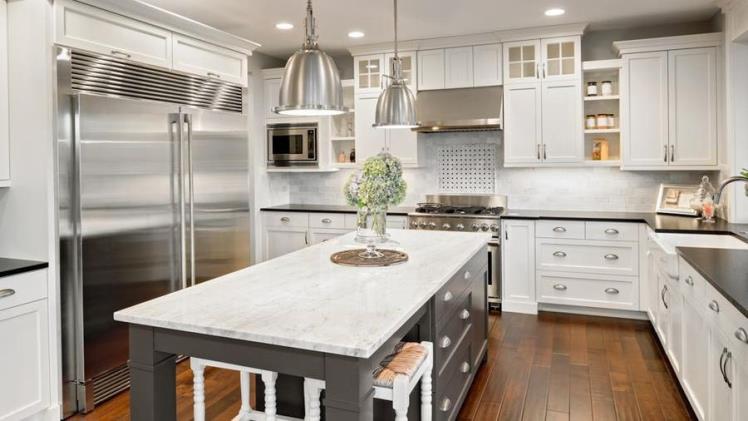Quartz countertops have recently gained immense popularity as a premium choice for kitchen and bathroom surfaces. Their elegant appearance, durability, and low maintenance requirements make them a sought-after option for homeowners and designers alike. However, the cost of quartz countertops can vary significantly based on several factors. In this comprehensive exploration, we will delve into the various elements that influence the cost of quartz countertops, shedding light on the factors that contribute to their pricing variability while also examining the value they offer.
Factors Influencing the Cost of Quartz Countertops
Material Quality and Brand
The quality and brand of the quartz material play a significant role in determining the cost of quartz countertops. Established and reputable brands often command higher prices due to their reputation for producing high-quality, consistent, durable materials. Premium brands invest in rigorous quality control measures, resulting in countertops that resist chipping, cracking, and fading over time.
Quartz Grade and Rarity
Quartz countertops are available in different grades, ranging from basic to premium. Higher-grade quartz often features more intricate patterns, better color consistency, and enhanced durability. Rare or exotic quartz patterns can also contribute to a higher price point, as these materials might be sourced from specific regions or exhibit unique characteristics.
Thickness and Edge Profiles
The quartz slab’s thickness and the edge profile choice impact both the aesthetics and the cost of quartz countertops. Thicker slabs are generally more expensive due to the increased material used and the added sturdiness they provide. Likewise, complex edge profiles, such as ogee or waterfall edges, require more labor and craftsmanship, which can raise the overall cost.
Color and Pattern
The color and pattern of the quartz material can significantly affect its price. Basic, solid colors are often more affordable, while intricate patterns, veining, or color variations might increase the cost. Quartz can mimic the look of natural stones like marble and granite, adding to its appeal and cost variability.
Installation Complexity
The complexity of the installation process can influence the final cost of quartz countertops. Countertops with multiple angles, curves, or cutouts for sinks and appliances may require more precise fabrication and installation, leading to higher labor costs.
Market Demand and Location
Like any commodity, market demand and geographic location can impact pricing. In regions with high demand for quartz countertops, prices might be higher due to increased consumer competition. Moreover, factors like local labor costs and transportation expenses can contribute to regional variations in pricing. Buoc Chan Lang Tham Nguyen Si Kha • Rainy Day Memories • 2023
Comparing Quartz Countertop Costs to Other Materials
While quartz countertops are known for their durability and elegance, it’s essential to consider their cost compared to other popular countertop materials, such as granite, marble, and solid surface options.
Granite
Granite countertops offer a natural and unique appearance but can be comparable in cost to mid-range quartz options. The price of granite can vary based on the stone’s rarity and the installation’s complexity.
Marble
Marble countertops are often considered a luxury choice due to their timeless beauty. However, they are generally more expensive than quartz due to their softer nature and susceptibility to staining and etching.
Solid Surface
Solid surface materials like Corian offer a more budget-friendly option compared to quartz. While they might not have the same natural appearance, they provide durability and easy maintenance at a lower cost.
Calculating the Cost
The cost of quartz countertops is typically calculated per square foot to provide a general estimate. On average, basic quartz countertops can start at around $50 per square foot, while premium options can range from $100 to $200 or more per square foot. However, it’s important to note that these prices are approximate and can vary based on the factors mentioned earlier.
Conclusion
In conclusion, the cost of quartz countertops is influenced by various factors, including material quality, brand, grade, pattern, installation complexity, etc. While they can be pricier than other countertop materials, their value in terms of durability, low maintenance, aesthetic appeal, and long-term benefits can make them a worthy investment for homeowners. By considering the initial cost and the overall value, individuals can make informed decisions about incorporating quartz countertops into their living spaces, enjoying a combination of functionality and beauty that can last for years.

